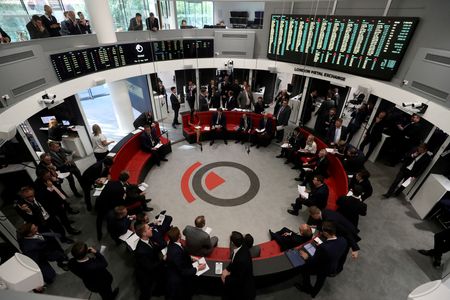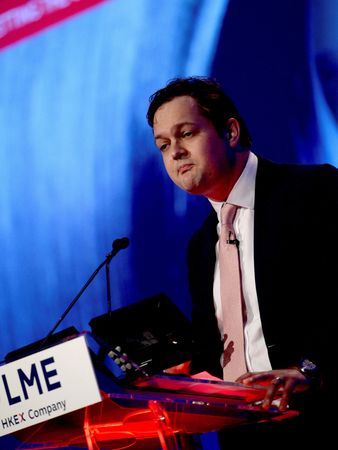By Pratima Desai and Eric Onstad
LONDON (Reuters) -The London Metal Exchange (LME) said on Tuesday it will set out by end-March how it will implement recommendations to prevent market distortions and improve risk monitoring after a review into the nickel crisis last year.
Months after turbulence highlighted shortcomings in LME oversight, the nickel contract remains broken. Volumes and liquidity are sliding, leaving the nickel industry without a global reference price.
Worries about supplies from major producer Russia after it invaded Ukraine and the cutting of large short positions, or bets on lower nickel prices, culminated on March 8 in disorderly trade which saw prices double to above $100,000 a tonne in a matter of hours.
The world’s largest and oldest metals forum annulled all nickel trades on that day, for which it is facing legal action, and suspended the market for the first time since 1988.
It appointed management consultants Oliver Wyman to carry out a review of the nickel trading debacle last June.
“It’s a good and fair report, it clearly identifies things that we need to improve,” LME Chief Executive Matthew Chamberlain told Reuters.
The recommendations build on measures the LME took shortly after the crisis, including 15% daily price limits and over the counter (OTC) position reporting for all physically delivered metals.
Recommendations include extending the LME’s risk and control functions to identify and prevent market distortions, monitoring significant risks in the OTC market and tightening rules and enforcement processes.
Chamberlain said recommendation range from “fairly straight-forward implementation … through to quite a lot of technical work” and that “implementation will be over a reasonably long period of time”.
The report also recommends improvements to operational readiness for managing extreme events and stricter price volatility controls.
CONCERNS CONFIRMED
“The independent review has confirmed our concerns that the LME lacked the systems and controls to manage through the March 2022 nickel crisis,” said Jennifer Han, Head of Global Regulatory Affairs at the Managed Funds Association (MFA).
“It is essential that a robust regulatory review addresses how LME failed in its regulatory function.”
The Bank of England and the Financial Conduct Authority in April launched a sweeping probe into the nickel trading halt.
Regulators said the episode underlined questions about the transparency of the 145-year-old LME and they would determine if further action should be taken.
The FCA is looking into how the exchange handled the situation while the BoE is looking into the LME’s clearing house.
Part of the problem is that only about 21% of global production or 650,000 tonnes can be delivered against the LME nickel contract.
“The LME Nickel Committee will continue to explore whether any changes to the LME Nickel contract … may be beneficial to the market,” the LME said.
The exchange said it expects to soon announce the return of Asian nickel trading, which was halted in March last year, which it expects will help boost liquidity in the market.
(Reporting by Pratima Desai and Eric Onstad; editing by Kirsten Donovan and David Evans)


